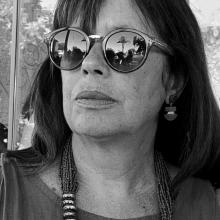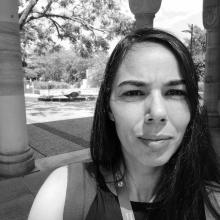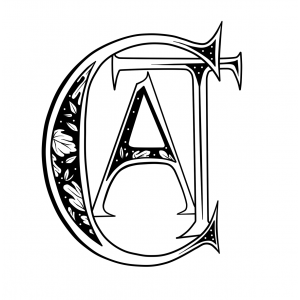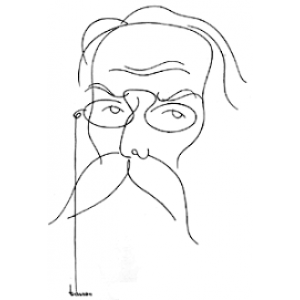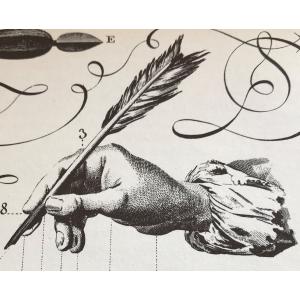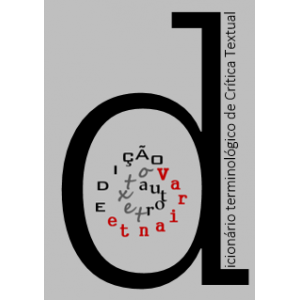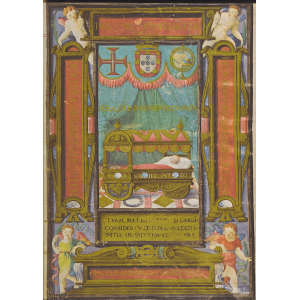Philology
Claiming the philologic inheritance of Luís Filipe Lindley Cintra, this Group aims at locating, interpreting and critically editing literary and non-literary, unpublished or unsatisfactorily published texts that are relevant to the history and the description of Portuguese language.
The group acts in the fields of genetic criticism, history of the book and bibliography. It currently focuses on the development of electronic resources that enhance the reading and the study of literary and metalinguistic texts, giving special attention to Middle Ages and the Baroque period. At the same time the genetic and critical edition of modern authors such as Almeida Garrett, Camilo Castelo Branco and Fernando Pessoa is proceeding.
The Group intends to build a reference frame for the study and philological practice in Portugal, making evident the contribution of Philology for the research in the History of Language, as well as for the preservation of literary and cultural memory.
Furthermore the research materializes in partnerships with the Programme in Textual Criticism and the Department of General and Romance Linguistics, teaching units at FLUL.
Membros
Integrated members with PhD
Integrated members without PhD
Colaboradores
Concluded
| Resources | Type |
|---|---|
| Bibliotrónica Portuguesa | Eletronic Edition |
| Boletim de Filologia | Eletronic Edition |
| Corpus of Ancient Texts | Corpus |
| Dicionario de Regionalismos e Arcaísmos, de Leite de Vasconcelos | Database |
| Dicionário Terminológico de Crítica Textual - DTCT | Corpus |
| Digitalization of Fernando Pessoa's private library | Eletronic Edition |
| Edition of O Livro de Virtuosa Bemfeyturia | Eletronic Edition |
| Lexicographical Corpus of Portuguese | Corpus |
| Medieval Texts in Galician, Galician-Portuguese, and Portuguese - BITAGAP | Database |
| Os Degraus do Parnaso | Corpus |
| Portuguese Manuscripts of Regra de São Bento | Eletronic Edition |
| Revista Lusitana | Eletronic Edition |
| Sebástica Manuscrita: catalogue and digital editions of Portuguese historiographical texts of the XVI and XVII centuries | Database |
. (2008). Galiza no espaço cultural e simbólico da Lusofonia. Grial, XLVI. |
. (2008). Editando o Livro de José de Arimateia. Filologia E Linguistica Portuguesa, São Paulo, 345-364. |
. (1988). Ortographe et adrénaline. La Quinzaine Littéraire, 519, 23. |
. (2017). Notas sobre toponímia portuguesa medieval. Monografia 11 Da Revista Galega De Filoloxía, 11, 149-174. Retrieved from http://illa.udc.es/rgf/monografias.html |
. (2017). Multiple authorship and intermedia revision: an editorial approach to Pedro Homem de Mello’s poems adapted to fado. Scholarly Editing: The Annual Of The Association For Documentary Editing 38, 38. Retrieved from http://scholarlyediting.org/2017/essays/essay.pereira.html |
. (2014). Landmarks of Economic Terminology: The First Portuguese Translation of Elémens du commerce. History Of European Ideas, 40. Retrieved from http://dx.doi.org/10.1080/01916599.2014.968334" |
. (2013). Menço ou minto? Regularização de paradigmas verbais. Diacrítica, Série Ciências Da Linguagem, 27. Retrieved from http://ceh.ilch.uminho.pt/publicacoes/Diacritica\_27-1.pdf" |
. (2009). Revisitando a periodização do português: o português médio. Domínios De Lingu@Gem, Ano 3, 2. |
. (2008). O português medieval: koinização e elaboração. Veredas, 9, 155-176. |
. (2010). Português Médio: uma fase de transição ou uma transição de fase?. Diacrítica, Ciências Da Linguagem, 23. |
. (2006). O judeu nas cantigas de Santa Maria: uma análise comparativa. Caderno De Estudos Sefarditas, 6, 77-99. |
. (2003). Fragmento alojado. A Cantiga De Seguir De Fernam Rodrigues Redondo, Don Pedro Est [O] Cunhado Del-Rei. Românica. Revista De Literatura Do Departamento De Literaturas Românicas, 12, 9-23. |
. (1996). O Outro Nome da Ama. Uma Polémica Suscitada Pelo Trovador Joam Soares Coelho. Colóquio / Letras, 142, 51-64. |
. (1993). Sobre a especificidade da cantiga de romaria. Revista Da Biblioteca Nacional, S. 2, 2. |
. (2011). Book review to «Nogueira, Carlos – A Sátira na Poesia Portuguesa e a Poesia Satírica de Nicolau Tolentino». Colóquio/Letras, 182, 278-280. |
. (2012). Book review to «Pereira, Henrique Manuel S. (coord.) – À Volta de Junqueiro: Vida, Obra e Pensamento. Porto: Universidade Católica Portuguesa, 2010». Colóquio/Letras, 179, 265-269. |
. (2011). Epistolários e preservação da memória: a correspondência de João Penha. Cem: Cultura, Espaço & Memória, 2, 171-181. Retrieved from http://hdl.handle.net/10216/63946 |
. (2010). Canções d’um vagabundo: João Penha e a viagem por terra ao país dos sonhos. Cem: Cultura, Espaço & Memória, 1, 177-186. Retrieved from http://hdl.handle.net/10216/55945 |
. (2011). A visita das fontes: testemunhos, traduções. História Da Língua. Românica, Revista Do Departamento De Literaturas Românicas, 20, 43-56. |
. (2010). A edição de O Caminho dos Pisões. De M. S. Lourenço. Românica, 19, 193-207. |
. (2007). Graças. Revista Eletrônica De Estudos Literários, Vitória, 3. Retrieved from http://www.ufes.br/\~mlb/reel3/pdf/JoaoDionisio.pdf |
. (2005). Livro Azul. Românica, Revista Do Departamento De Literaturas Românicas, 14, 107-25. |
. (2002). Literatura franciscana no Leal Conselheiro. De D. Duarte. Lusitania Sacra. Revista Do Centro De Estudos De História Religiosa, 2. |
. (2001). Duas notas sobre o códice 35 da Casa Forte do IANTT. Românica, Revista Do Departamento De Literaturas Românicas, Faculdade De Letras Da Universidade De Lisboa, 10, 181-89. |
. (1998). D. Duarte Em Francês. Leituras. Revista Da Biblioteca Nacional, 3, 165-76. |
. (1996). D. Duarte Mis-En-Abîme. Sobre Uma Redundância No Capítulo Lrviii Do Leal Conselheiro. Românica, Revista De Literatura Do Departamento De Literaturas Românicas, Faculdade De Letras Da Universidade De Lisboa, 5, 129-40. |
. (1996). Lembranças rebeldes, combates mnésicos e remédios vinícolas: sobre a arte do esquecimento no Leal Conselheiro. De D. Duarte. Colóquio-Letras, 142, 147-58. |
. (1995). Uma abelha no prólogo. Sobre Um Desejo Formulado No Início Do Leal Conselheiro, De D. Duarte. Revista Da Biblioteca Nacional, 10. |
. (1994). ’Escrevo. Logo Lembro’. A Escrita Mnemónica No Leal Conselheiro De D. Duarte. O Escritor, 3, 136-143. |
. (1994). ’Levad , amigo. Que Dormides As Manhanas Frias’ De Nuno Fernandes Torneol. Revista Da Biblioteca Nacional Vol. 9, 9. |






